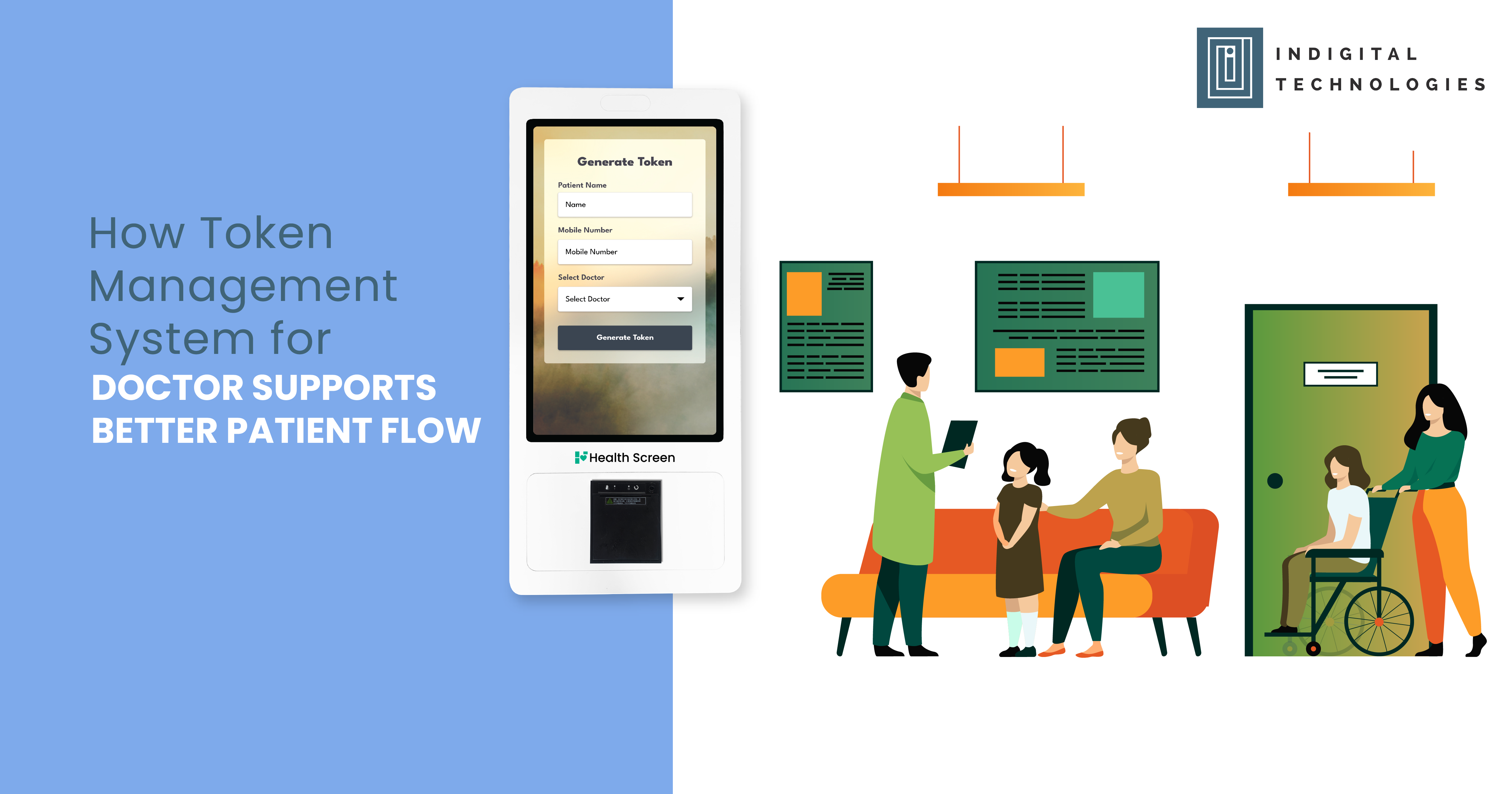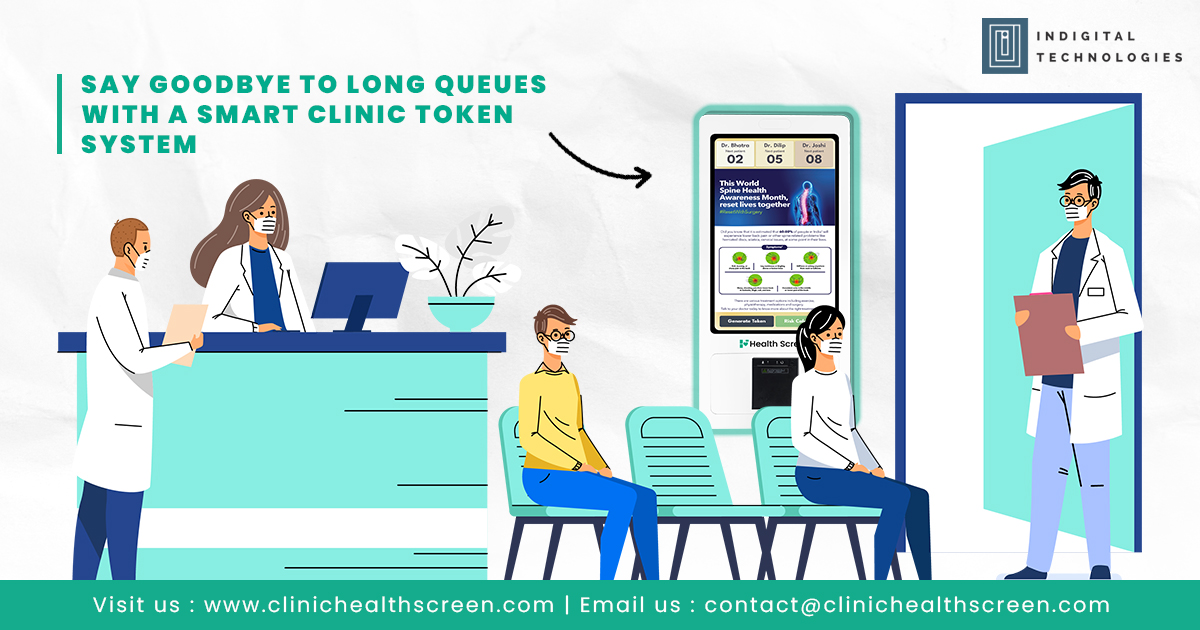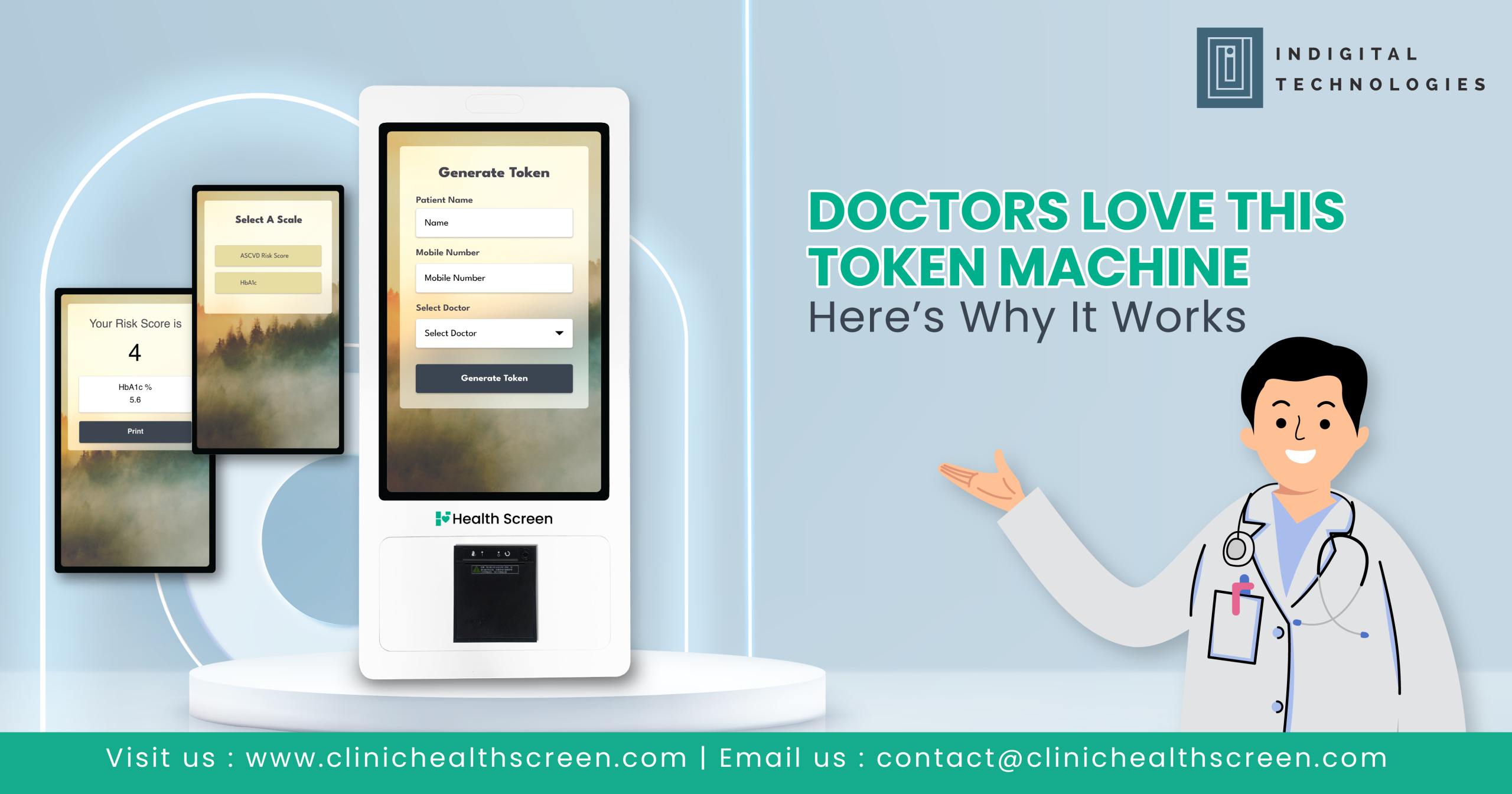One of the most frustrating experiences for patients is long, unstructured waiting times at clinics. For doctors, it’s equally challenging to manage high footfall, reduce walkouts, and maintain consultation quality under pressure. Token management machines — also known as queue management systems — offer a powerful solution to streamline patient flow and significantly reduce waiting time.
In this blog, we explore the top 5 types of token machines suitable for clinics, with a focus on their features, benefits, and how they help reduce operational friction while enhancing the patient experience.
Why Token Machines Are Essential in Clinics Today
Before we jump into the list, it’s important to understand how token machines contribute to efficiency:
- They create an orderly queue system
- Inform patients of their turn via digital displays or SMS
- Prevent overcrowding and confusion
- Allow doctors to control the flow of consultations
- Help clinics serve more patients in less time
Let’s now explore the best token machine types that can suit different clinic environments, from single-doctor setups to busy OPD centers.
1. Self-Service Touchscreen Kiosk Token Machines
Best for: Medium to Large Clinics with High Footfall
These machines allow patients to:
- Check in on their own
- Select the type of visit (new, follow-up, lab, etc.)
- Generate a digital or printed token
- View wait time estimates
Key Features:
- Large touchscreen interface
- Multilingual support
- Integration with patient ID or phone number
- Custom token categorization
- Can be paired with waiting room screens
Benefits:
- Reduces burden on front-desk staff
- Speeds up check-in process
- Suitable for multispecialty OPDs
- Improves patient confidence with modern UI
Efficiency Impact:
- Cuts waiting line congestion by up to 50%
- Reduces time spent at reception by 70%
2. Desktop-Based Token Printers for Reception Use
Best for: Small to Mid-Size Clinics with Dedicated Reception
These are plug-and-play devices connected to a reception computer. Staff enter patient details, and the printer issues a token slip.
Key Features:
- Fast token issuance
- Number sequencing with date and time
- May connect with digital display boards
- Cost-effective and easy to maintain
Benefits:
- Affordable for small clinics
- Works with minimal training
- Keeps workflow centralized
Efficiency Impact:
- Improves queue clarity
- Shortens waiting disputes and reduces verbal coordination
3. Mobile-Based QR Token Generators
Best for: Clinics with Tech-Savvy or Repeat Patients
Patients scan a QR code placed outside the clinic or on your website, generate a token on their phone, and monitor their place in the queue remotely.
Key Features:
- No hardware needed
- Sends SMS notifications for queue status
- Enables contactless check-in
- Syncs with token displays
Benefits:
- Ideal for clinics with parking or space issues
- Enables patients to wait in their cars or nearby
- Reduces indoor crowding
Efficiency Impact:
- Drastically lowers in-clinic congestion
- Improves overall hygiene and distancing measures
4. Integrated Token & Health Information Display Systems
Best for: Clinics Looking to Combine Patient Education & Flow Management
These machines display token status alongside educational content (e.g., animations, health tips, pharma-branded messages).
Key Features:
- Dual-screen or split-screen display
- Token queue with visuals and audio alerts
- Branded or personalized health education content
- Sync with backend doctor dashboards
Benefits:
- Converts idle waiting time into an educational opportunity
- Enhances brand recall (clinics or pharma sponsors)
- Keeps patients engaged while waiting
Efficiency Impact:
- Improves patient satisfaction
- Reduces repeated inquiries at the reception
5. Multi-Doctor Token Routing Systems
Best for: Group Practices and Multi-Specialty Clinics
These systems manage queues across multiple doctors, departments, or rooms — dynamically routing patients based on availability.
Key Features:
- Multiple queues and counters
- Doctor-specific token display
- Automated routing to available consultants
- Doctor override functionality
Benefits:
- Prevents doctor overload
- Balances patient flow across specialties
- Saves time lost in manual routing
Efficiency Impact:
- Cuts wait time during peak hours
- Enables smarter patient distribution
How to Choose the Right Token Machine for Your Clinic
Every clinic has unique operational needs. Here’s a simple matrix to help you choose the right solution:
| Clinic Type | Recommended Token Machine |
| Single-doctor clinic | Desktop token printer or mobile QR system |
| Small clinic with staff | Reception-linked printer with digital display |
| Tech-first setup | Mobile-based check-in with SMS alerts |
| High-volume OPD | Touchscreen kiosk with split-screen display |
| Group/multi-specialty | Multi-queue intelligent routing system |
Key Features to Prioritize
Regardless of which token system you choose, ensure it includes:
- Real-time queue display
- Doctor/staff control panel
- Multilingual and regional support
- Offline functionality during internet outages
- Data logging and reporting
For Indian clinics, regional adaptability and simplicity are just as important as speed.
Practical Benefits of Token Machines in Daily Practice
Let’s summarize what these machines do in real-time clinic scenarios:
| Challenge | How Token Machine Helps |
| Patients crowding at reception | Tokenized check-in creates orderly flow |
| Long unexplained wait times | Real-time updates reduce uncertainty |
| Front-desk overload | Self-service or auto-token issuance saves time |
| No-show confusion | Digital logs help track attendance |
| Staff-patient arguments | Transparent queues improve trust |
The Pharma Advantage
Pharma companies can partner with clinics to:
- Co-sponsor educational token displays
- Run disease awareness campaigns via waiting room content
- Brand the token slips or digital messages
This strengthens engagement and builds long-term recall with minimal intrusion in the clinical space.
Final Thoughts
Token machines are no longer a luxury — they are a necessity in today’s efficiency-focused healthcare model. Whether you’re a single-doctor clinic, a chain of diagnostic centers, or a multi-specialty OPD, the right token solution can dramatically reduce wait times, increase patient satisfaction, and streamline staff workflow.
The key is not just choosing a machine, but selecting one that aligns with your clinic’s culture, scale, and patient expectations. The future of clinic efficiency starts with one number — and the technology that manages it well.





